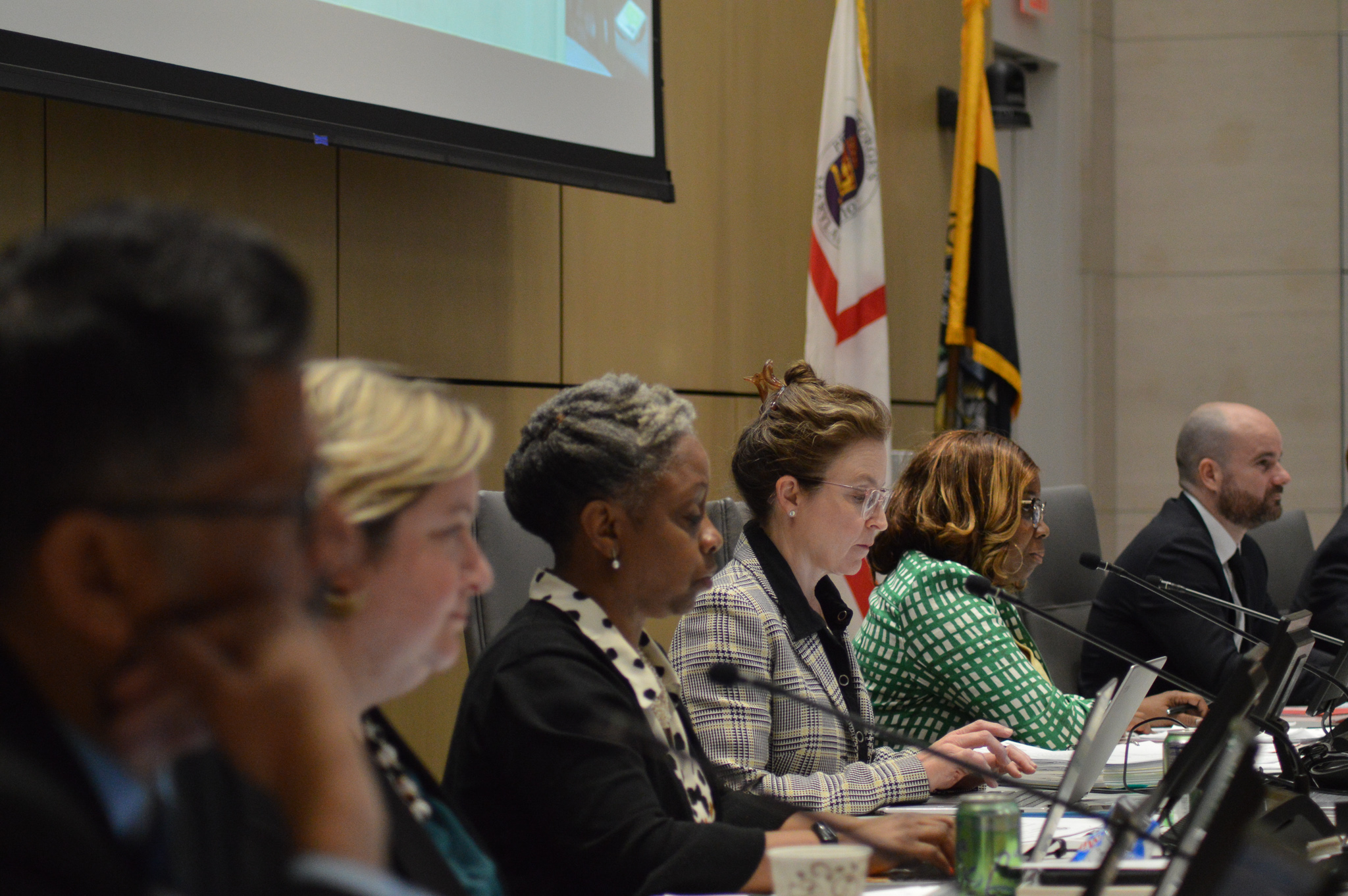Three of the four candidates in this week’s election for College Park mayor currently serve on the College Park City Council.
Here’s a look into how the three — Fazlul Kabir, Kate Kennedy and Denise Mitchell — have voted in some major decisions over recent years.
Tree Ordinance
The tree ordinance, a policy aiming to protect the city’s tree canopy, garnered controversy among residents due to its requirement that residents obtain a permit to remove large trees, even on private property. The ordinance was passed in May 2022.
Kennedy and Kabir, who both represent District 1 on the council, voted for the ordinance, citing the environmental benefits of protecting the tree canopy. While the ordinance isn’t perfect, Kennedy believes it was important and stands by the decision.
“In general, I believe that the common good of trees is more important than someone’s property rights,” Kennedy said.
[UMD students, small businesses top of mind for College Park mayoral candidates]
Mitchell, the mayor pro tem and District 4 council member, voted against the ordinance. She was voting for her constituents who were very against the ordinance’s control over private property, she said.
“It seems as though it was too onerous of a bill that really lacked judgment in regards to the city telling residents what they can and cannot do,” Mitchell said.
City Hall Bond
In 2019, the council voted to sell bonds to pay for the new city hall and Duvall Field project. Kennedy supported selling the bonds, but was absent at the meeting, while Kabir and Mitchell voted against it.
The new city hall opened in 2021 and is a city-university project. The project cost the City of College Park and the University of Maryland around $51 million. Duvall Field is a multi-sport field in North College Park.
It was irresponsible of council members to vote against the bonds, Kennedy said.
“At that point, we were already well into the process of getting those bonds and moving forward with both those projects,” she said.
Kabir voted against selling bonds because he was worried about the increasing costs of both projects.
Mitchell was also concerned about the costs of the projects and wanted residents to be able to vote on the cost of the city hall.
Revitalization Tax Credits
One way the city can attract businesses and have leverage over what those businesses are is through revitalization tax credits. Because the city doesn’t have zoning authority, they can control what businesses come in by offering tax incentives.
For both Tempo, a student apartment complex, and Atworth, a development near the College Park Metro Station, Kabir and Mitchell voted against the tax credit while Kennedy voted for it. The Tempo revitalization tax credits passed in April 2021 and Atworth’s passed in May 2020.
There are enough student housing developments on Route 1, Mitchell said, and if developments want to come in, they should be able to fund themselves without a tax credit. She was also concerned about the developments’ lack of affordability for students, expressed by the student liaisons at the time.
The vote on the Tempo tax credit was more complicated than most tax credits, according to Kennedy. City staff originally incorrectly said the development qualified for the tax credit, creating confusion.
Kennedy voted for Tempo to still get the tax incentive to back up city staff, to protect the city’s reputation and to avoid the risk of getting sued by the development for taking away a promised tax incentive.
Kabir disagreed with the council’s decision to give Tempo a tax credit. The city should have acknowledged their mistake, he said, but not defy the city’s policy by going along with the tax credit.
Non-Citizen Voting
In 2017, the council voted on whether non-citizens should be allowed to vote in city elections, and if that question should be answered in a referendum — a ballot question — or through a council vote. The issue failed to be put on the ballot as a referendum and was not passed as an ordinance.
Kabir abstained from voting on the issue. He believes in the right to vote by everyone, he said, but wanted College Park voters to have a say through a referendum.
Kabir abstains from some votes whenever he is conflicted about an issue, he said. Often, he asks for more public input about a topic or to delay a vote until more information is presented.
[Council members discuss raising taxes for vacant and blighted properties]
“We don’t know how he actually feels about it,” Kennedy said about Kabir abstaining from the non-citizen voting question. “We’ve never known and that, to me, is politics at its worst.”
Kennedy and Mitchell were not council members at the time of this vote. However, Kennedy said she released a statement in support of non-citizen voting through a sooner ordinance rather than a referendum.
“You don’t ask the people that have the power if the people without the power should have power,” she said about asking voters if non-citizens should vote. “It’s not the moral thing to do.”
Mitchell said she would have voted for a referendum to give residents a chance to voice their opinions.
Bryan Haddad
Bryan Haddad, a small business owner and political newcomer, is also running for the mayoral position. He has never served on the council, but he believes the tree ordinance should be strengthened. Haddad is against giving tax incentives to large developments and is in support of non-citizens voting.



